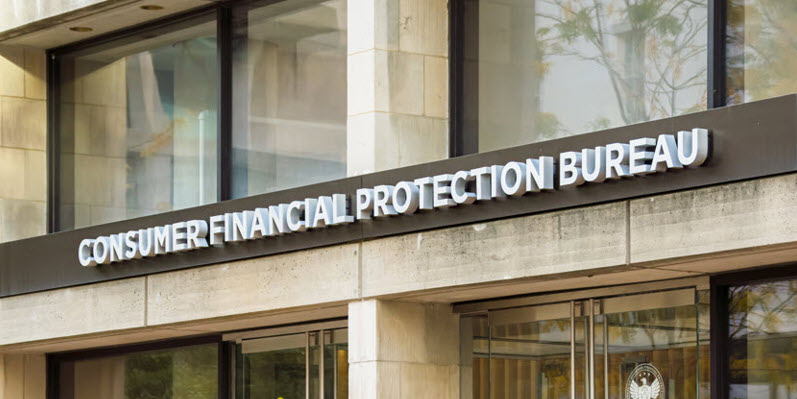The Consumer Financial Protection Bureau (CFPB) has finalized a rule to oversee the largest nonbank companies offering digital payment and wallet services. This rule targets companies handling over 50 million transactions annually, ensuring they adhere to federal laws similar to those governing banks, credit unions, and other financial institutions under CFPB supervision. Collectively, the apps covered by this rule process more than 13 billion consumer transactions each year.
Although the rule has been finalized, it has not yet been published in the Federal Register. Once published, it will take effect 30 days later.
The Growing Role of Digital Payment Apps
Digital payment apps have become essential tools for modern commerce, rivaling traditional payment methods like credit and debit cards. These apps, some owned by major tech companies, are especially popular among middle- and lower-income consumers who rely on them for everyday spending and transferring funds. What began as a convenient cash alternative now facilitates over a trillion dollars in payments annually.
Why Oversight Is Needed
While banks and credit unions offering similar services are already subject to CFPB examinations, many large tech firms managing billions of transactions have not been under the same scrutiny. To address this gap, the CFPB launched an inquiry into Big Tech and peer-to-peer payment platforms and has been monitoring consumer complaints.
The new rule grants the CFPB authority to conduct proactive examinations of these companies to ensure compliance with key areas of federal law:
- Privacy and Surveillance: Large tech companies collect significant data on consumer transactions. Federal law allows consumers to opt out of certain data-sharing practices and prohibits misleading claims about data protection.
- Errors and Fraud: Consumers have long-standing rights to dispute incorrect or fraudulent transactions, and financial institutions are required to investigate. The CFPB is particularly concerned about how digital payment apps may enable fraud targeting older adults and servicemembers. Some apps reportedly shift dispute resolution to banks and credit card issuers rather than addressing these issues themselves.
- Debanking: Consumers face significant disruptions when their accounts are unexpectedly closed or frozen, preventing them from making or receiving payments. The CFPB has received complaints about the impact of these disruptions on consumers’ lives.
How the Rule Strengthens Consumer Protections
This rule equips the CFPB to conduct examinations that detect problems early and prevent harm, such as system outages that could leave millions of users without access to their funds. Supervision also allows the agency to assess emerging risks in the rapidly evolving digital payments market.
The CFPB adjusted the final rule from its initial proposal, raising the transaction threshold for supervision to 50 million annual transactions and limiting its scope to transactions conducted in U.S. dollars.
Broader Efforts to Regulate Big Tech
This rule is part of the CFPB’s broader efforts to regulate large technology firms in financial markets. In recent years, the agency has:
- Warned Big Tech about its responsibilities under consumer protection laws.
- Published reports on the lack of federal deposit insurance for funds held in certain apps.
- Highlighted the restrictions Apple and Google impose in the “tap-to-pay” market.
- Created a supervision technology program to assess companies’ compliance with federal laws.
A Milestone in Consumer Financial Oversight
This is the sixth rulemaking by the CFPB to define larger participants in consumer financial markets, following rules for industries like debt collection and student loan servicing. By bringing large digital payment providers under supervision, the CFPB aims to protect consumers and ensure a fair, transparent marketplace for financial services.

Author: Jennifer Evancic
Jennifer.Evancic@ResourceManagement.com
Jennifer Evancic is a third-party auditor valued by creditors and large organizations for her knowledge in call monitoring within the collections industry. With meticulous attention to detail and a firm grasp of regulatory requirements, she ensures compliance with clients’ criteria and state and federal regulations.
Jennifer audits collections calls, ensuring they meet client-specific criteria and comply with regulations, providing valuable insights and maintaining industry standards.
Beyond her auditing responsibilities, Jennifer takes the lead in organizing and facilitating monthly call calibrations. These sessions serve as a collaborative forum where clients and their vendors come together to discuss call monitoring results and address any findings or areas for improvement. Jennifer’s guidance fosters open communication and ensures alignment between clients and vendors, driving continuous improvement in collections practices.
Jennifer stays up-to-date with compliance and industry best practices by participating regularly in peer meetings, regulatory updates and industry webinars. This keeps her informed about emerging issues and ensures she remains a knowledgeable leader in collections compliance.
Sign Up for the Twice Monthly Newsletter
Just enter your email address at the top orange bar at:
Collection Compliance Experts – “The Power of Expertise: Oversight Perfected”
It’s that easy! Twice a month – we provide blog updates and Resources for the Collection and Industry Professional.
Your email is just for this newsletter. We never sell your information. No fee. Opt-out at any time.





